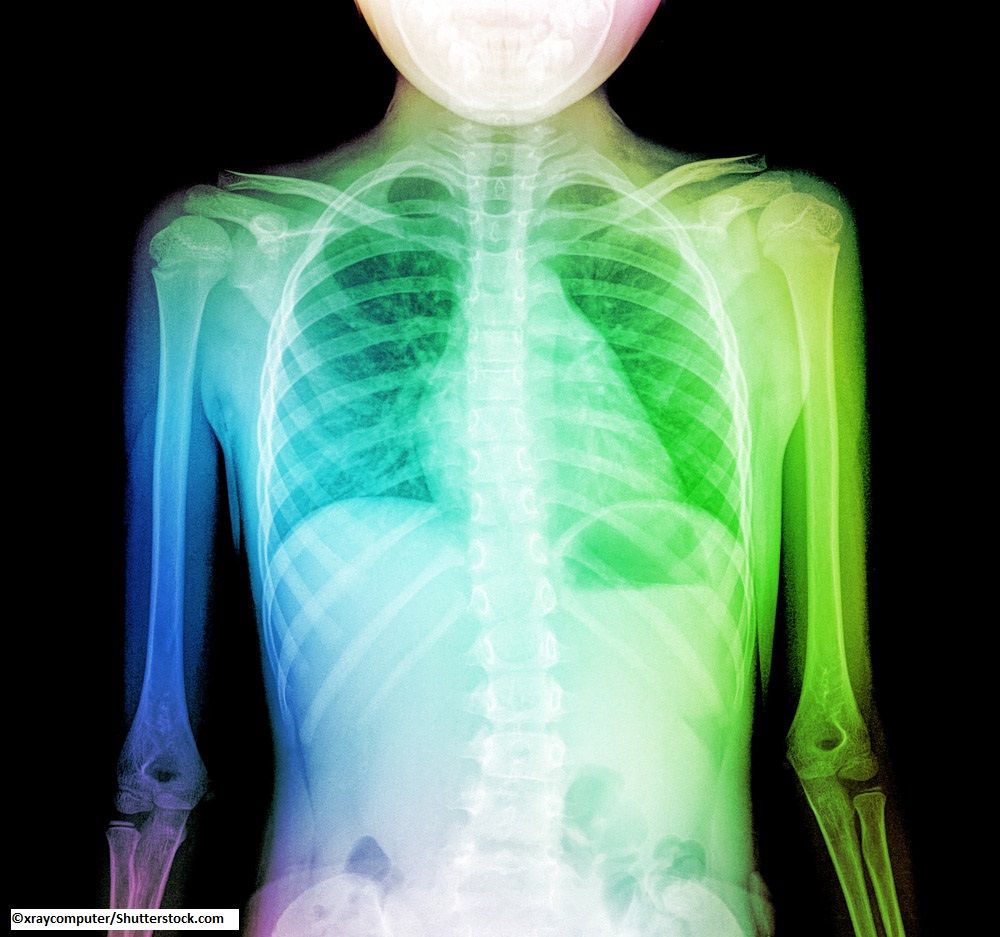- Clinical Technology
- Adult Immunization
- Hepatology
- Pediatric Immunization
- Screening
- Psychiatry
- Allergy
- Women's Health
- Cardiology
- Pediatrics
- Dermatology
- Endocrinology
- Pain Management
- Gastroenterology
- Infectious Disease
- Obesity Medicine
- Rheumatology
- Nephrology
- Neurology
- Pulmonology
Childhood Respiratory Tract Infections Linked to Later Asthma
Lower respiratory infections in children seem to predispose to poor adult lung function, but causation and directionality have yet to be determined.

Early-life respiratory tract infections appear to increase the risk of asthma and worsen lung function in later life, according to a new study.
“In particular, lower respiratory tract infections in early life seem to have the greatest adverse effect on lung function and the risk of asthma,” said Evelien van Meel, MD, from the Generation R Study Group at Erasmus MC University Medical Centre, The Netherlands.
The researchers presented their results on September 10, 2017 at the European Respiratory Society International Congress in Milan, Italy.
An international study of 154,492 European children analysed data from 37 groups of children from more than a dozen European countries who were born between 1989 and 2013. The meta-analysis examined data on respiratory tract infections from age 6 months up to 5 years old, and childhood lung function and/or asthma. Follow-up ranged from birth until age 4 to 15 years (average age 8 years).
Those who had had RTI -- colds, sinusitis, laryngitis, tonsillitis, pharyngitis and otitis--by age 5 years had a 1.5-fold increased risk of asthma in later life. Children who had lower RTIs--bronchitis, bronchiolitis, pneumonia and general chest infections--had a 2- to 4-fold increased risk of asthma in later life and were also more likely to have worse lung function.
The analysis took into account such factors as socio-economic status, lifestyle, birth weight, gestational age at birth, gender, age, height and ethnicity.
Upper RTIs were not associated with worse lung function in later life. However, lower respiratory infections at almost all ages were associated with worse lung function, as indicated by lower scores for FVC, FEV1, and forced expiratory flow at 75% of FVC.
Upper RTIs were not associated with worse lung function in later life, but lower RTIs at almost all ages were. But whether infections cause asthma and lower lung function, or whether wheezing and lower lung function may predispose to infection is unclear.
Van Meel pointed out that "however, at this stage we cannot say for certain whether the relationship is causal. Further studies that measure lung function and wheezing from birth onwards are needed to explore whether the infections cause asthma and lower lung function, or whether wheezing and lower lung function may be predisposing these children to develop the infections.
Further studies should aim to prevent or treat respiratory tract infections at an early stage, perhaps by vaccination, she said, adding that “at the age of 8 years, asthma is usually well established, as is lung function. Lung function in childhood is most likely related with lung function in adulthood.”
The researchers plan to conduct further research into the roles played by antibiotics, paracetamol, and exposure to second-hand smoke in the relationships between respiratory tract infections and lung function or asthma. “Also, we would like to study what percentage of the association between respiratory tract infections and asthma can be explained by changes in lung function, and whether the associations change when we take early-life wheezing into account," said van Meel.
References:
Abstract no: OA499, "Early-life respiratory tract infections and the risk of lower lung function and asthma: a meta-analysis of 154,492 children"; Determinants of childhood asthma and atopy session, 10.45-12.45 hrs CEST, Sunday 10 September.
